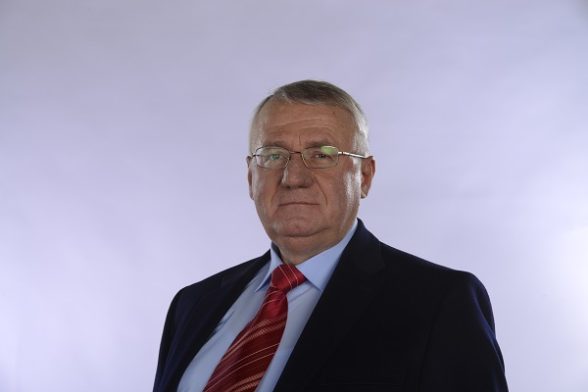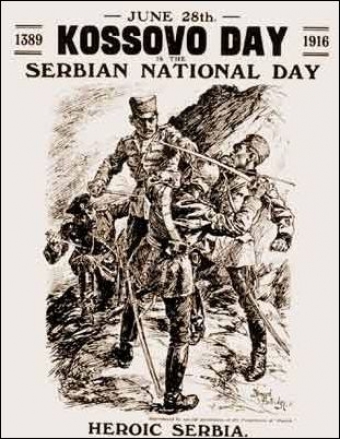The Bosnian insurgents hold already in their possession mountain strongholds, embracing over 1,000 square miles, are fairly armed, and, as I believe, capable not only of holding their own without foreign assistance, but ultimately, perhaps, unless thwarted by foreign intervention, of forming a new free State — a little Bosnian Montenegro — in the north-western angle of the province.
Finally, as to Turkish promises and paper constitutions, the fall of Midhat will have already prepared your readers for the intelligence that the Turkish Government has not dared to promulgate the new Constitution in Bosnia in the native language, and that, so far as Western Bosnia is concerned, the Government of Samboul has practically ceased to exist. The country not in the hands of the insurgents is terrorized over by the dominated caste of native Mohametan fanatics, the begs and agas, and their (in Bosnia still half-feudal) train of murderous Bashi-Bazouks, who have cast off the last semblance of obedience to the Central Government. In the country about Travnik and Banjaluka, the worst horrors of Bulgaria are repeating themselves at this very moment. I have before me the following details from a source of which you may absolutely rely. The outburst of fanaticism at present desolating that already desolated part of Bosnia, had its origin among the dregs of the Mohametan population of Travnik, the ex-capital of this country. One gang of these ruffians numbering about a hundred made its way to Banjaluka, and since the end of last month robber bands of these fanatics have been making inroads into the Christian villages whose inhabitants had not fled the country. As to the number of persons actually murdered, it is impossible at present to obtain details. In a single village, however — Zupa, by Banjaluka — there were six such assassinations; many have been cruelly beaten, and other outrages have been committed of which I cannot write. The worst is, that in the depths of winter a large and peaceful population have been scared from their homes, and are either hiding in the forests or have crossed the frontier. The Agram papers raise the number of this fresh exodus of refugees to 5,000, but this is probably an exaggeration, and I have been careful to accept nothing on the authority of Croatian and Dalmatian journals. The fact which I wish to impress upon my readers is that, so far from the refugees returning to their burnt homes, their numbers are rather augmenting; and even while I write this, news reaches me of fresh arrivals of refugees at this place from Glamoč; these, however, on their own showing, were driven forth by no particular act of barbarity, but simply by hunger and misery.
Tišovo, Free Bosnia, February 10
There are some five hundred insurgents encamped in the neighborhood of Despotović’s head-quarters: those I saw were fairly clad, some in Montenegrin fashion, well armed, and seemed to want for nothing. The insurgents, however, under Despotović’s command are scattered at present over a wide area of country, forming an irregular mountainous triangle between the Austrian frontier and the Turkish fortresses of Kulen Vakuf, Kliuč and Glamoč, the chief bulwark of which to the east is the great mountain mass of Czerna Gora, or the Black Mountain; so that there literally exists at the present moment a little Bosnian Montenegro.
It was to exploring the whole of this difficult country and to visiting the other principal insurgent camps that I has resolved to devote the following days; and I was lucky in securing the services of the ex-commander Golub Babić, who is still chief Vojvoda of the insurgents and their most trusted leader, as my guide and escort. I was also accompanied by Atanasija Smilianić, a young but exceedingly brave warrior, of a famed and noble Dalmatian race, and who spoke German tolerably well.
I was mounted on a sure-footed Bosnian pony, and, with no more deadly weapon than a walking-stick, set forth with my escort armed to the teeth to explore a country as little known to Europeans as the wilds of Asia; the Mohamentan Effendi, of whom I took leave, grimly expressing a hope that I would call on some friends of his at Petrovatz, as they had vowed a vow to hang the first Englishman they set eyes on! Obviously we are loosing our popularity in Bosnia, and indeed the Effendi explained that among Bosnian Begs, who have lost a good deal of property during the present troubles, the English are peculiarly hateful, many of them declaring that they would never have fought against the insurgents at all if they had not been sure of English help. This is to be regretted, as the fanatical raid of these Begs on the Christian population of this part have been attended with terrible havoc and ferocious deeds of cruelty.
It was already twilight when we caught sight of our day’s destination, the village of Veliki Tišovo, perched on a rocky knoll on the side of the ‘pole.’ Here is another insurgent camp containing over four hundred armed men who, as we approached, formed in line and received us with another military demonstration.
Here, as elsewhere, the men are hearty and hopeful and are armed with serviceable breechloaders, and the village they occupy lies in such a secure position that it has never been visited by the Turks. We are received into the hut of Pero Kreco, the local Vojvoda, and glad enough I was to seat myself before his blazing pine-logs, for the cold in these highlands is intense. We were feasted with excellent broth and mutton, and a very jovial evening was enlivened with some songs about the Sultan by no means complimentary in their character.
I am much struck at the difference between the men here and the Bosnian rajahs that I remember still under Turkish yoke. They are incomparably less degraded, whether that so short an enjoyment of freedom has already elevated their character, or that the mountaineers of this part have always been superior in physique to those of the more central districts and of the Possavina, or lands about the Save, where the inhabitants are a smaller race and are contemptuously spoken of by the Bosniacs themselves as “frogs”. The people about here are Pravoslav in their religion to a man, whereas in the more central and northern districts, with which I had been previously better acquainted, the population was largely Catholic; and it has often been remarked that the Pravoslavs or Orthodox in Bosnia are more manly and moral than the Latins. The Pravoslav grasps his congregation by the hand; the Romish priest leads them by the nose. The Pravoslav pope is obliged to be a married man, which itself is a good thing, for it is to be observed as an odd coincidence that the only regions in Bosnia in which prostitutes are to be found are those where Romish priests are plentiful.
Here I heard an instance of those revolting practices which, with many other evil relics of mediaeval feudalism or importations of Asiatic barbarism, still survive among the Slavonic Begs of Bosnia. Mili Kotor, a peasant of Grahovo, near here, was captured by one of the Mohametan landlords and his Bashi-bazouk retainers, and forced to swallow large quantities of salt and water. In a mill at Sterminitza may be seen any day by those who are curious as to these monstrosities of barbarism a man who was tied face foremost to a tree and worried by dogs while the Beg sat by and smoked his chibouk.
Unnatz, in Free Bosnia, February 11
We left Tišovo about 6.30 this morning, and following another mountain pass, leaving on our left the great Chator, a two hours’ ride brought us to another ‘polje’ and the village of Preodatz. The Turks had never penetrated here, and one half of the village was still occupied by its inhabitants; the other half, however, had left, having no corn to sow, and are now among the refugees at Stermnitza. So the cottages are empty and half ruined, for the fugitives have carried with them part of the wooden roofs for firewood. There are turbine mills over the little stream, but the millers have gone. In this village was an ancient graveyard, and an old cross overthrown and half buried in the earth. The people said that when the Turks first conquered Bosnia a marriage was going on here; that the Turks rushed in, killed the wedding guests and bridegroom, and carried off the bride, and that this cross was set up in memory of the tragedy. I had the cross raised, and discovered on its under side a very ancient Bosnian inscription; but though I have not yet succeeded in deciphering the runes, they are hardly likely to throw much light upon the legend. Beyond this was another monument of ancient Bosnia, the foundations of a church long destroyed; and on a peak above, perched as if by magic on almost inaccessible rocks, overlooking on one side a stream at the bottom of a stupendous chasm, stand the fine ruins of a castle dating from the feudal days of the Christian kingdom. Its massive tower looked down at present on wasted fields and deserted homesteads, and brought home to one in a singular way what the wretched serfs of Bosnia have suffered both in the present and the past.
Emerging on the valley of the Unnatz, I found a more fertile and friendly country than any I have yet seen in the liberated district of Bosnia. The beech trees were finer and the soul richer, and the village of Lower Unnatz itself, to which we now made our way, was as flourishing as any in this part of Bosnia before it was burnt and harried by the Turks. As it is, the devastation is cruel; the fields lie waste, and only a few huts, where the ‘cheta,’ or insurgent camp, is pitched, are still unburnt and surrounded by a little cultivation. On our way we made a slight detour to visit the remains of an ancient church that once rose on the other side of the valley, and the architectural fragments which I have discovered showed that in days before the Turkish conquest something of a higher civilization had penetrated into this remote valley.
About eleven hours from our morning’s start we arrived at the “cheta” of Unnatz, where we were received, as elsewhere, with military honors by a troop of about one hundred and fifty insurgents.
We were now welcomed into the hut of the local Vojvode, Simo Kralj, and here I passed an evening which carried one back to Homeric times. The evening meal was served, as elsewhere, on a round board, on which was first set a great bowl of boiled Indian corn, from which the assembled chieftains and their guests helped themselves by means of curiously ornamented wooden spoons. This was succeeded by lumps of mutton, which we picked off the board with our fingers, one at a time, and at intervals the host handed to each in turn a silver drinking cup of curiously antique shape filled to brimming with thick Dalmatian wine. The women and children, and those of less consequence, ate afterwards, and during the meal two women held torches of resinous pinewood above our heads. Then the “guzla”, the national lyre, was brought out, and a venerable minstrel played and sang the song of free Bosnia, for amongst this highly poetic people the insurrection has already its unwritten epics.
Then I stretched myself with the others on the hay that had been strewn, as an unusual luxury, for our common couch, and, with my feet towards the embers, prepared to pass from cloudland into dreamland; and last of all the chieftain, with patriarchal ceremony, spread a sheepskin over me against the small hours of the night.
Sir Arthur John Evans
Illyrian Letters (1878)
.

